Background:
The AMS Performance intercooler is installed on my GTI to collect performance data on the street for comparison with other intercoolers that have been installed on my car.
Previously airflow through the external fins and interior was measured.
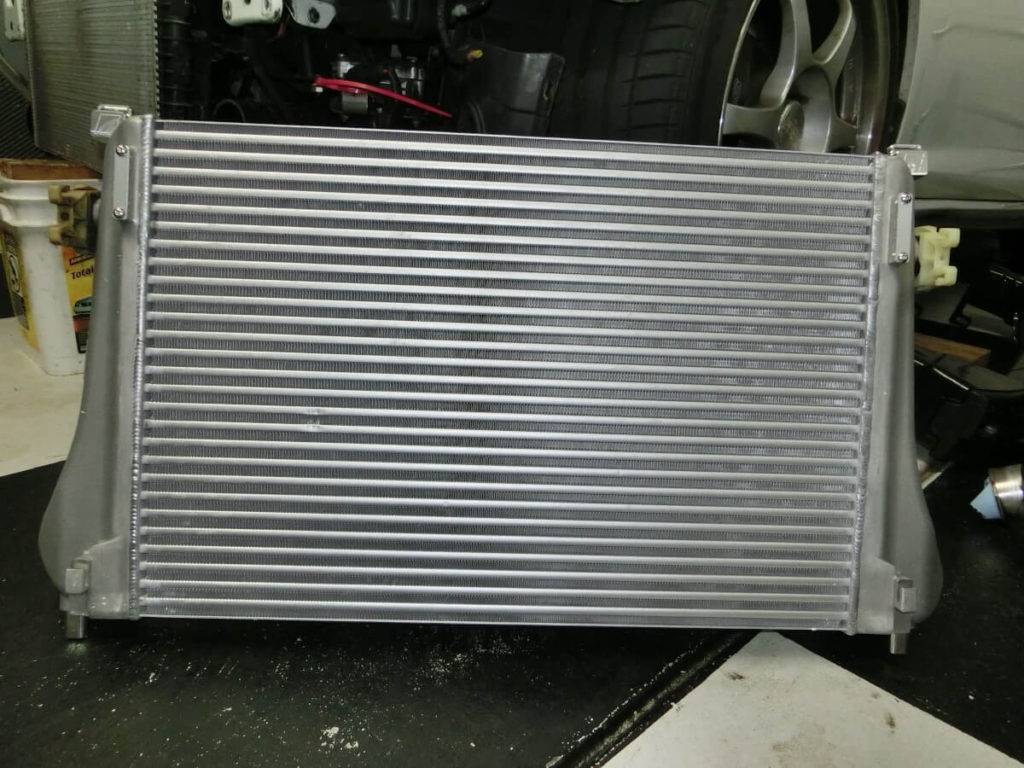
Test Procedure:
Data is recorded continuously during two drives that include a series of full-throttle pulls in third gear.
The GTI is equipped with a Shuenk IS38+ turbo using a custom EQT tune that boosts to approximately 28 psi and then tapers to around 23 psi.
The data of most interest is found during full-throttle third gear pulls that begin around 2000-2500 rpm and conclude about 6300-6500 rpm.
Full-throttle acceleration is repeated to gather multiple data points to support calculating sample averages.
Test Results:
Some data collected during the first test session is shown below.
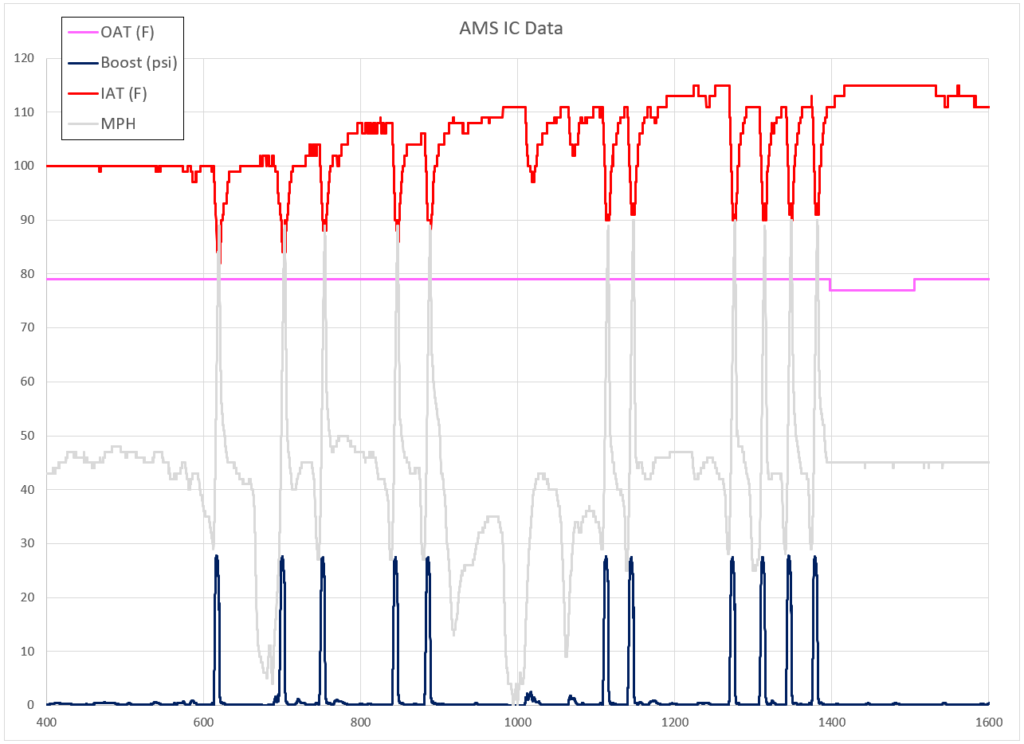
A summary of boost and IAT data during the pulls is shown next:
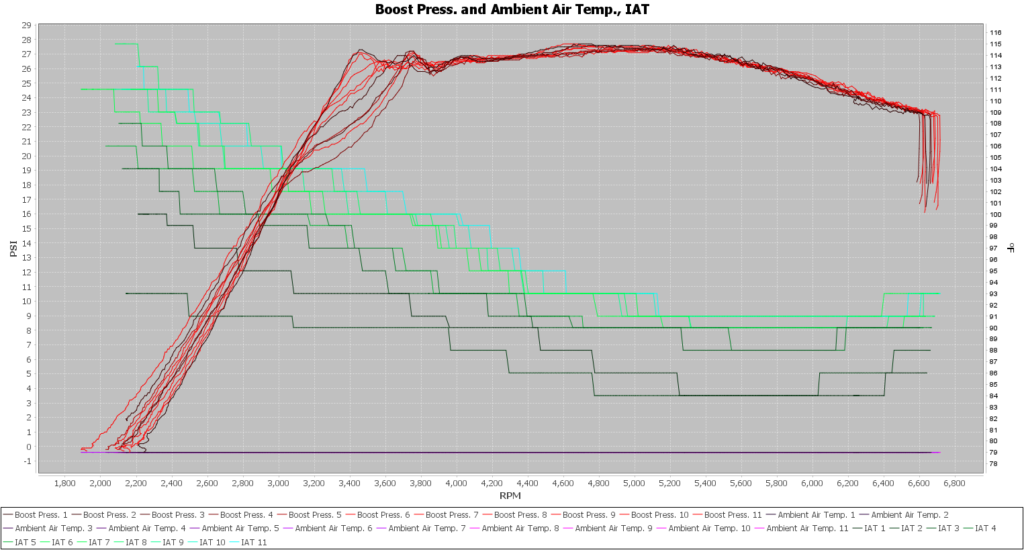
The second drive is shown in the next chart. The ambient air temperature was consistent between the two sessions.
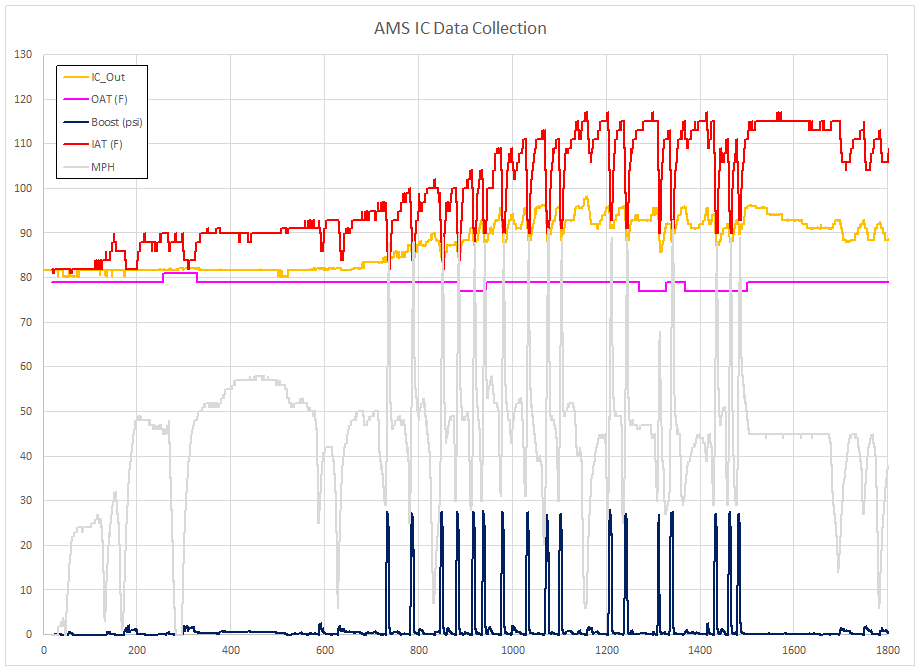
Boost and air temperatures during the second session of pulls are shown in the next chart:
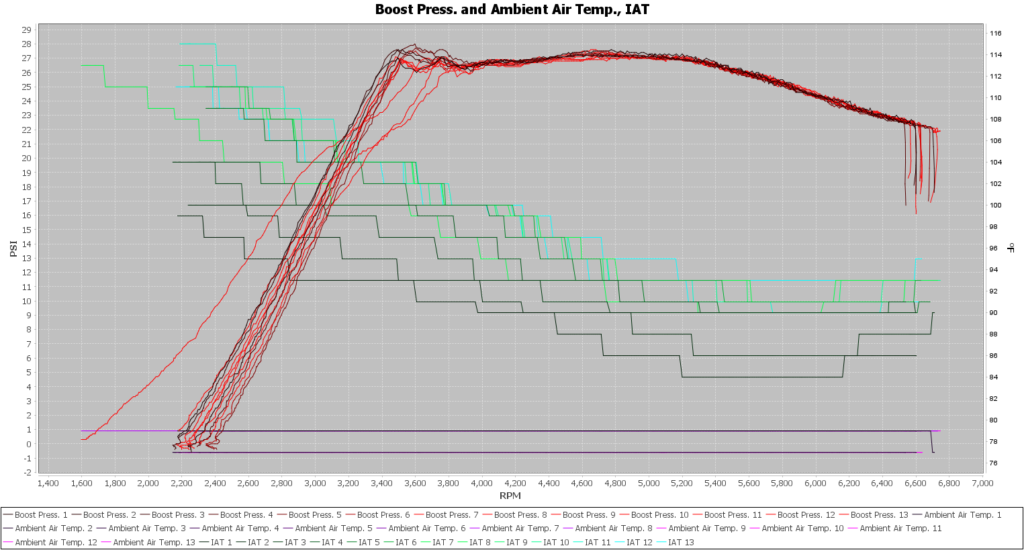
The intake air temperature above the ambient temperature at 6,000 RPM is noted for each pull and summarized in the boxplot.
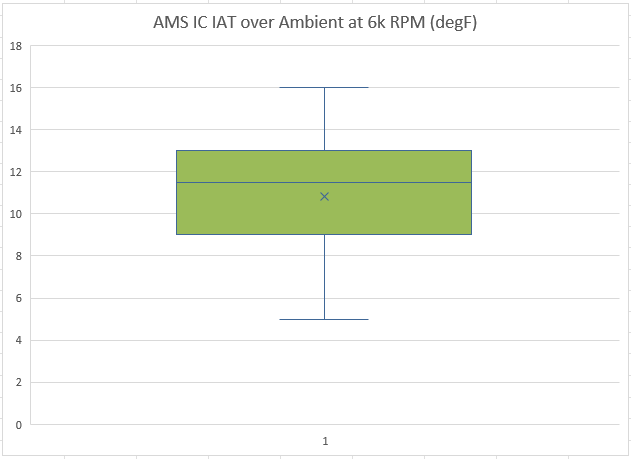
This next chart shows the pressure drop from the turbocharger compressor outlet to the intake manifold.
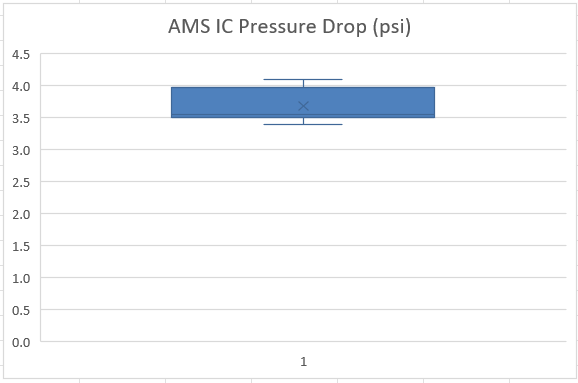
The next chart is a summary of intercoolers tested using the flow bench and on the street and is now updated to include the AMS IC.
Note: In the past, there have been concerns raised that measuring pressure drop using a flow bench may not reflect “real world” pressure drop. This chart shows that there is a strong correlation between bench measured flow numbers and on-vehicle pressure drop.
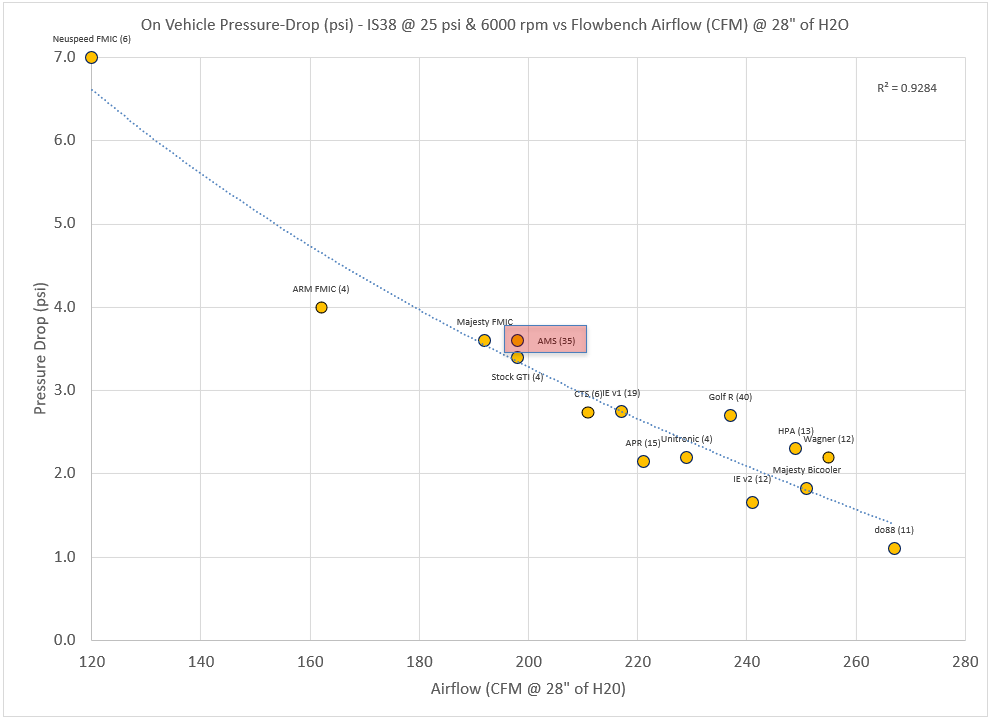
Another data point I have been recording more recently is the intercooler outlet temperature above ambient ten seconds after the conclusion of a pull. The intent of this measure is to try and assess how well the intercooler recovers shortly after a pull concludes.
Note: IC outlet temperature is measured using an RTD sensor in the throttle body side charge pipe. IAT at the intake manifold begins to diverge from the intercooler exit temperature after the pull concludes.
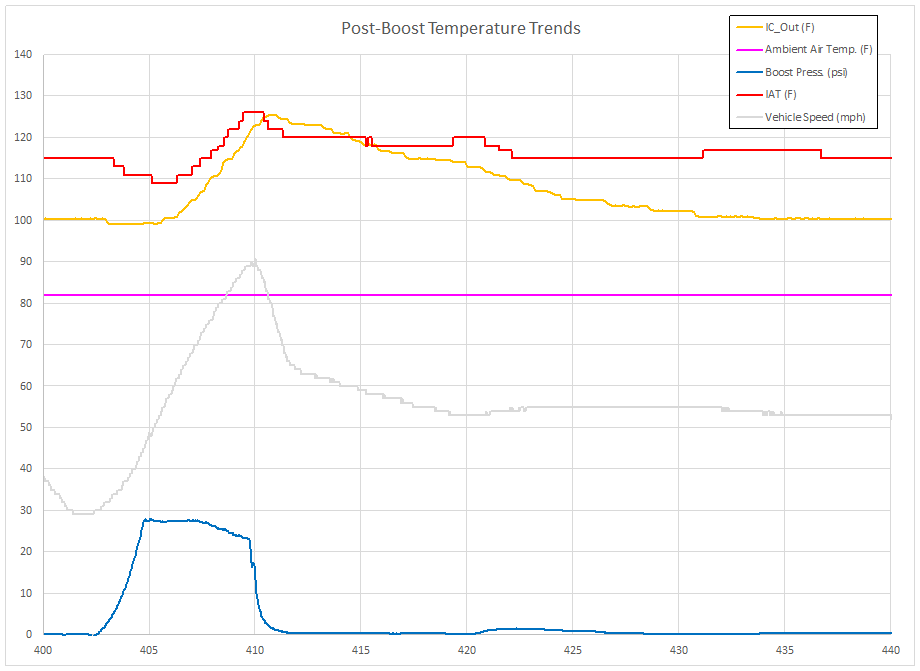
Results for products I have recorded this measure for are shown on the chart:
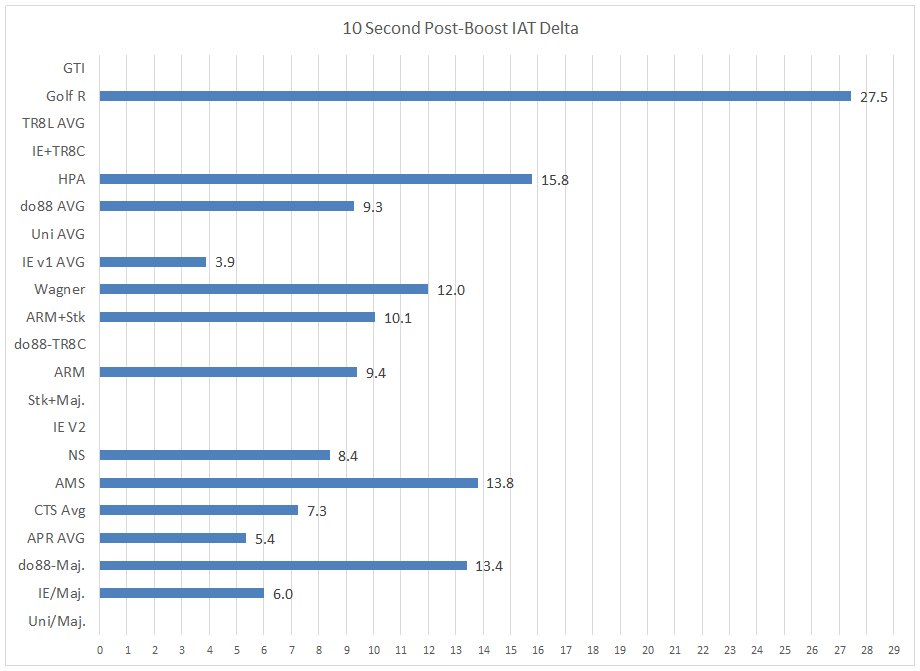
The AMS IC intercooler is added to the summary chart of all the intercoolers that I have recorded street data for.
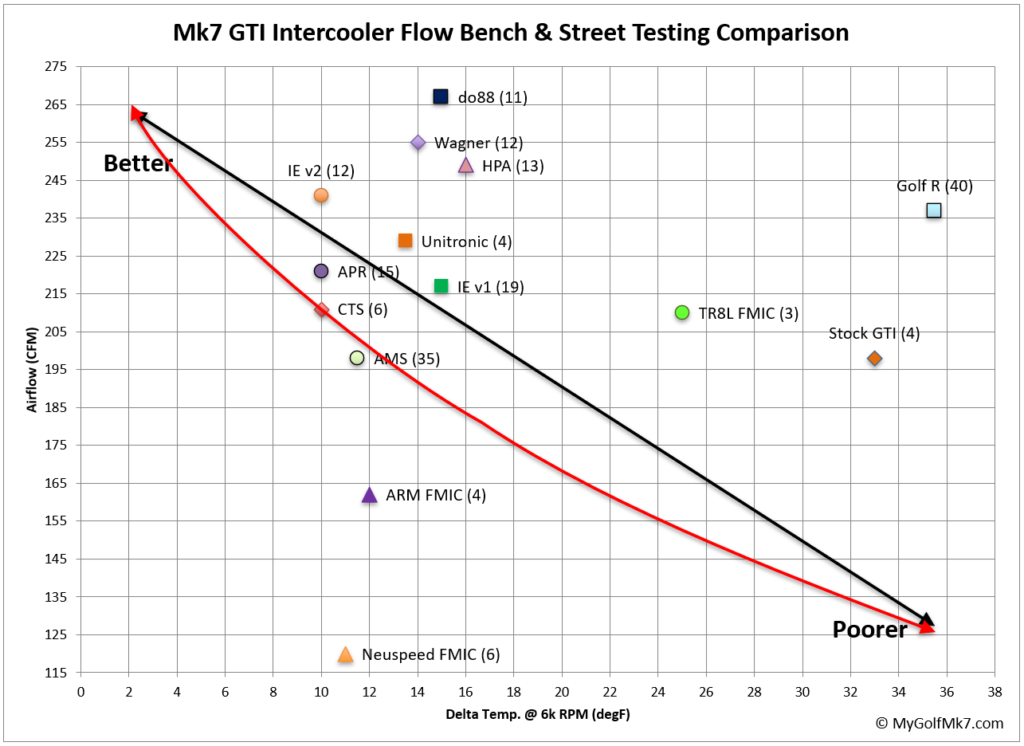
Note: The addition of the red line is an indicator of the emphasis I place on cooling performance versus flow performance. Stock location intercoolers generally display pressure drop that I consider satisfactory.
Conclusions:
The AMS intercooler was installed on my GTI and street data was recorded during full-throttle third gear pulls using an IS38 turbocharger.
Median IAT above ambient at 6k RPM is 11 degrees Fahrenheit. This is slightly better than the average for the aftermarket stock location intercoolers that have been tested.
The pressure drop from the turbocharger across the AMS IC at approximately 6k RPM has a median value of 3.6 psi. This is slightly worse than the average for the stock location intercoolers that have been tested.
Results from the AMS intercooler are compared with other intercoolers that have been tested as described above.
